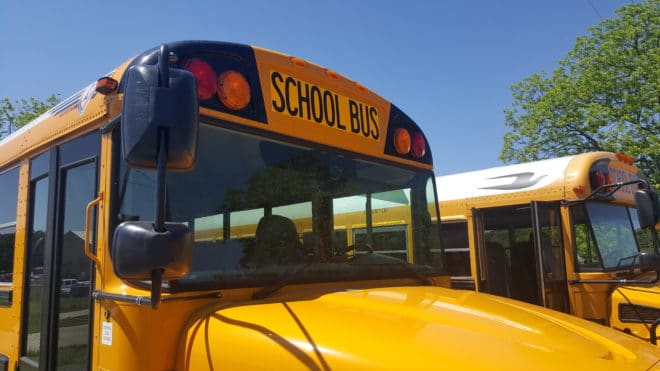In a surprise vote, the MAEP rewrite appears to have died.
The rewrite for Mississippi’s public education funding formula was brought up for debate on the Senate floor on Thursday, and because of concerns about the new student-based weighted formula, a motion to recommit the bill to the committee stage was brought up and passed.
The deadline for bills to come out of the committee stage has come and gone, and the passage of this motion effectively kills the bill, as pointed out by Senate Education Committee Chairman Gray Tollison.
“There is no more work to be done in the Education Committee. The Committee deadline was Tuesday,” Tollison said. “This is a killing motion.”
Senator Hob Bryan made the motion and said that more work needed to be done on the bill to ensure that all lawmakers and parents alike could understand the bill which would fund public schools across the state.
One of Bryan’s key concerns dealt with the weighted student formula and how the extra funds are spent. For example, the proposed formula would have operated on a base student cost of $4,800 and a 25% weight would be given to low-income students with gifted and other types of students also receiving a weight.
Bryan said that while the weights could mean more money for those students, there was no mandate on how the extra money had to be spent.
“Under this new proposal, you get money for labeling gifted students. You don’t have to use the money for gifted students. The money just comes to you in a check, let’s be clear about that,” Bryan explained. “The school district can do anything they want to with it. So no, you don’t even have to have a gifted program to get money for gifted students.”
Bryan said that the proposal gives districts incentives to falsify labels for students to receive more money. Tollison responded by stating that there were safeguards in place from school districts such as an IQ test to determine a label such as gifted.
Bryan then pointed to a projection which shows a quarter of school districts receiving less money than they do now six years down the road.
“You think 1/4 of the school districts in this state are getting too much money?” Bryan asked.
He concluded by saying that a funding formula should have support across the board, and challenged lawmakers to develop a formula that receives that support from both sides.
“Let’s see if they can’t come up with a formula that doesn’t pit senator against senator, school district against school district, that doesn’t put you in a position of explaining why you voted for taking money away from some of your school districts. Let’s see if we can come up with something that has broad-based support like an education funding proposition ought to,” Bryan said.
The proposed formula would have replaced MAEP which has been in place since 1997, but has only been fully funded twice. Many lawmakers have been pushing for the shift to a student-based formula since 2017 when a consulting firm named EdBuild was brought in to help develop such a proposal.
The bill passed in the House earlier in the session, and Speaker of the House Philip Gunn was one of the bill’s biggest supporters. Following the news of its failure in the Senate, Gunn praised those who voted in favor of the formula but said that those who voted against it let politics get in the way of Mississippi students.
“I commend the House members who voted in favor of this solid legislation at the beginning of session. They recognized that our children are a priority. I am very disappointed that the Senate missed the opportunity to provide our school children a better funding mechanism, Gunn said. “Those senators who did not support the legislation failed to do what is best for the students. “They let the politics of public education get in the way of our students. We can argue about the dollar amount all day long, but no one can refute that this was a better way to fund education.”
The final vote on the bill was 27-21 with 19 Democrats and 8 Republicans voting in favor of recommitting the bill and 21 Republicans opposed.
While the bill is technically dead, it can be brought back through a suspension resolution that would require a 2/3 vote of the House and a 2/3 vote of the Senate.




